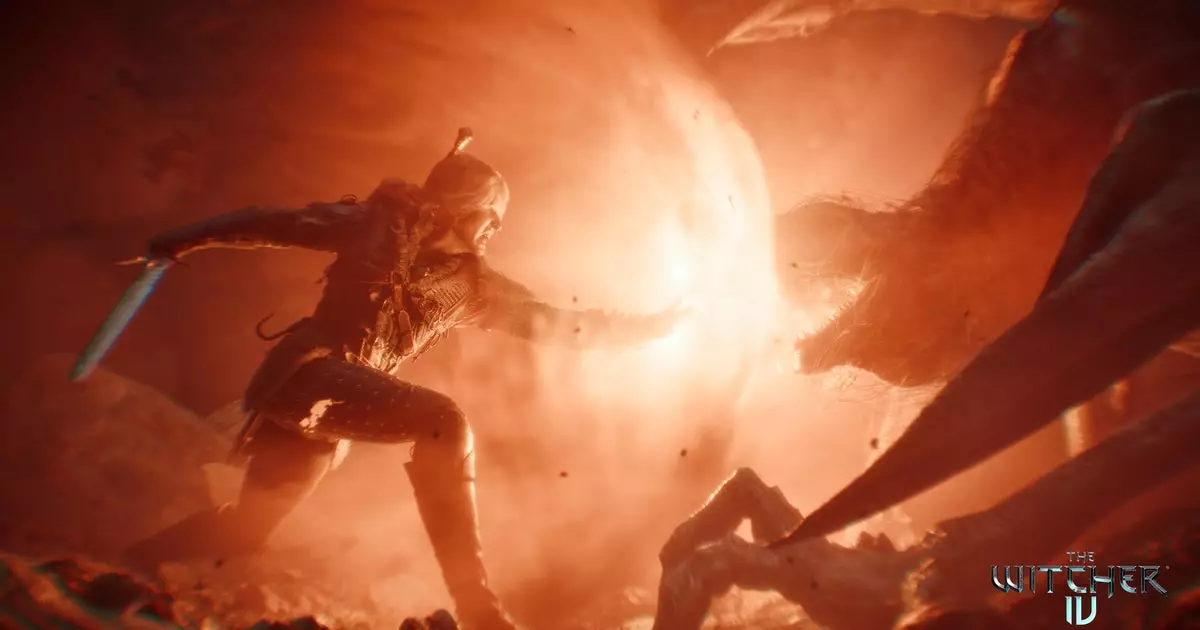The gaming landscape is always abuzz with new announcements, yet few have sparked as substantial a dialogue as the recent revelation of The Witcher 4, featuring Ciri as its lead character. This decision has ignited passionate discussions, ranging from outrage over the choice of a female protagonist, particularly one framed in a traditionally male role, to thoughtful critiques about her suitability as a Witcher hero. The reactions encapsulate a spectrum of gaming culture, illuminating the complexities behind character development and narrative choices in a beloved franchise.
As one of the defining figures in gaming, Geralt of Rivia has become synonymous with the franchise. His gruff demeanor, complex morality, and an endless array of quests have created a deep bond with fans. However, the choice to center the narrative around Ciri offers a fresh perspective that diverges from the established norm. Although Geralt’s story shaped the series, Ciri’s arc offers potential for explorations of her identity, growth, and moral dilemmas that reflect contemporary issues—an opportunity that CD Projekt Red seems eager to embrace.
Game directors Sebastian Kalemba and Philipp Weber have acknowledged this shift publicly, emphasizing Ciri’s established presence in The Witcher 3 and her potential as a protagonist. While some might argue that her lack of traditional Witcher modifications undermines her role, it’s crucial to recognize that Ciri’s narrative is layered with complexity. Unlike Geralt, who is already a seasoned monster hunter, Ciri has room for development. Her journey heralds a new exploration of what it means to become a Witcher in a world filled with prejudices and expectations.
Ciri’s character presents an opportunity to challenge the archetypes typically associated with the Witcher universe. Traditionally, the series has been steeped in male-centered narratives with underlying tones of misogyny—a reflection of the historical context from which it draws inspiration. Yet, Weber’s comments indicate a deliberate intention to navigate these themes thoughtfully. Ciri, as a female figure in a male-dominated world, can serve as a conduit for exploring gender dynamics and societal expectations within the game’s lore.
Weber discusses how Ciri’s perspective as a female Witcher not only complements the original series but also prompts critical engagement with the misogynistic elements of the world. Rather than receiving a sanitized portrayal, she will lead players through narratives that evoke the harsher realities faced by women in both fantasy and historical contexts. By confronting these topics, the creators have the chance to develop a storyline that is not only engaging but also intellectually stimulating, merging the entertaining aspects of gaming with pertinent social discussions.
The gameplay mechanics in The Witcher 4 promise to reflect Ciri’s unique abilities. Unlike Geralt, who has firmly established combat techniques, Kalemba hints at a more nuanced approach to gameplay with Ciri. This character-driven design, as Weber articulates, allows players to influence her path as she transitions into the Witcher role. This mechanic fosters a deeper connection between the player and Ciri, accentuating her growth and allowing for greater emotional investment in her journey.
One significant concern raised during discussions is how Ciri’s supernatural capabilities will integrate into a traditional combat system. The developers have hinted at a thoughtful integration of her powers while maintaining a balance within gameplay. The key will be in striking a balance between her formidable abilities and the classic Witcher gameplay, ensuring that the experience remains both captivating and challenging.
Looking ahead, The Witcher 4 represents not just a continuation of a beloved saga but an evolution of the franchise’s storytelling capabilities. If CD Projekt Red successfully threads the needle of balancing Ciri’s unique attributes, player character development, and thematic richness, they could set a powerful precedent for narrative-driven games in general.
With Ciri at the forefront, The Witcher 4 is poised to invite conversations about gender, morality, and societal roles in ways that engage both seasoned fans and newcomers. As the franchise broadens its horizons, it will be crucial for the developers to navigate these waters carefully, crafting an experience that honors the essence of the series while embracing new concepts. Ultimately, the stakes are high, but the potential rewards are even greater, heralding a bright future for this iconic franchise.

